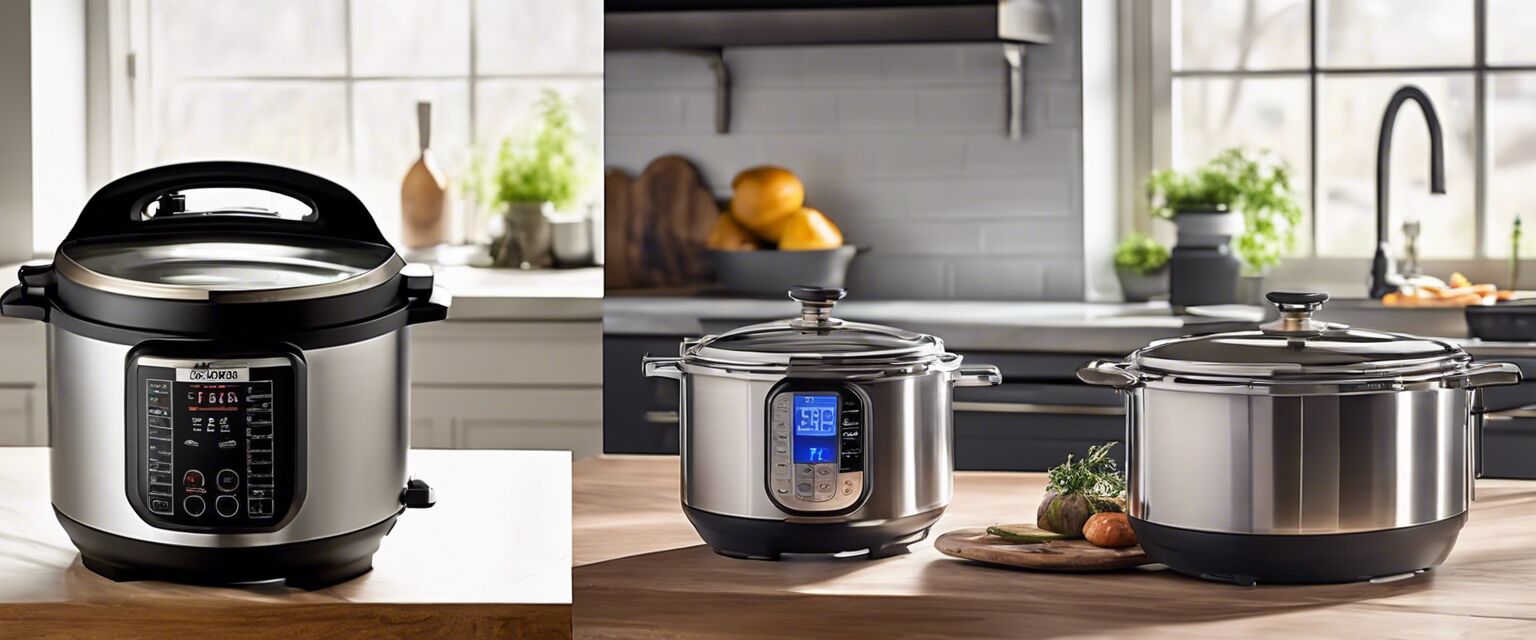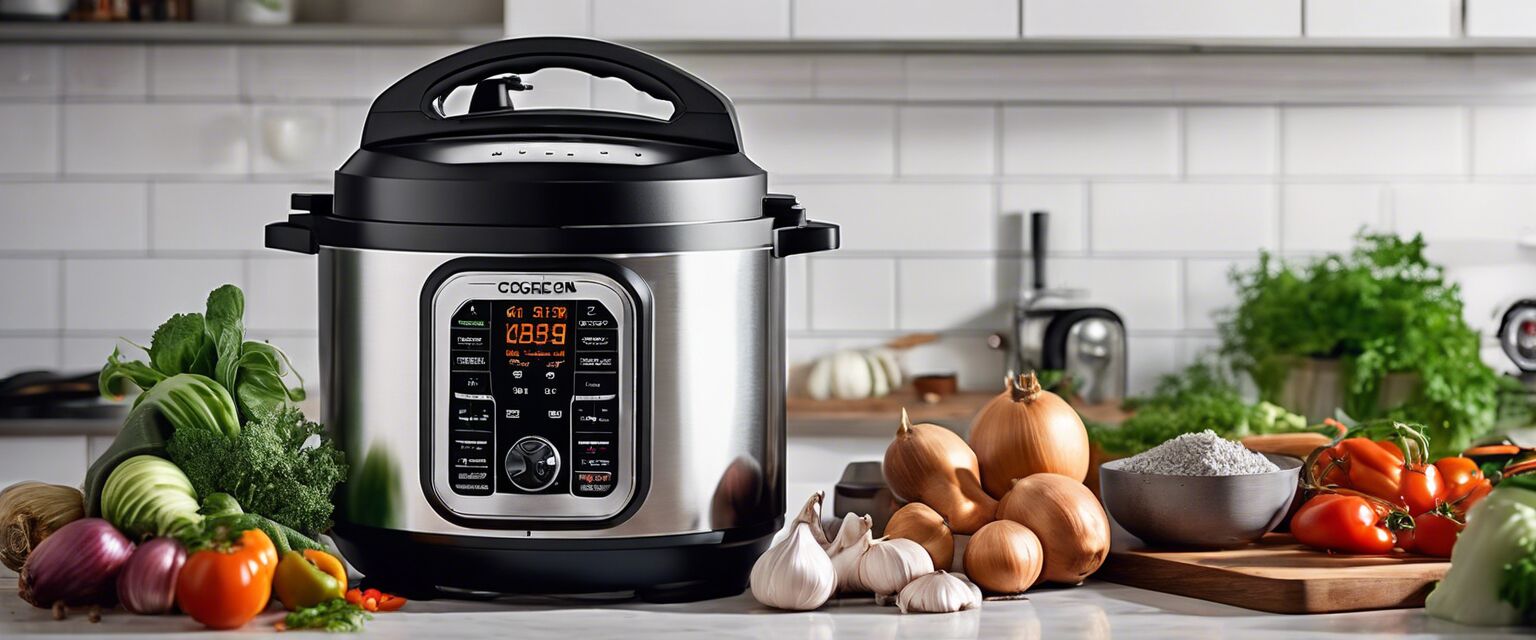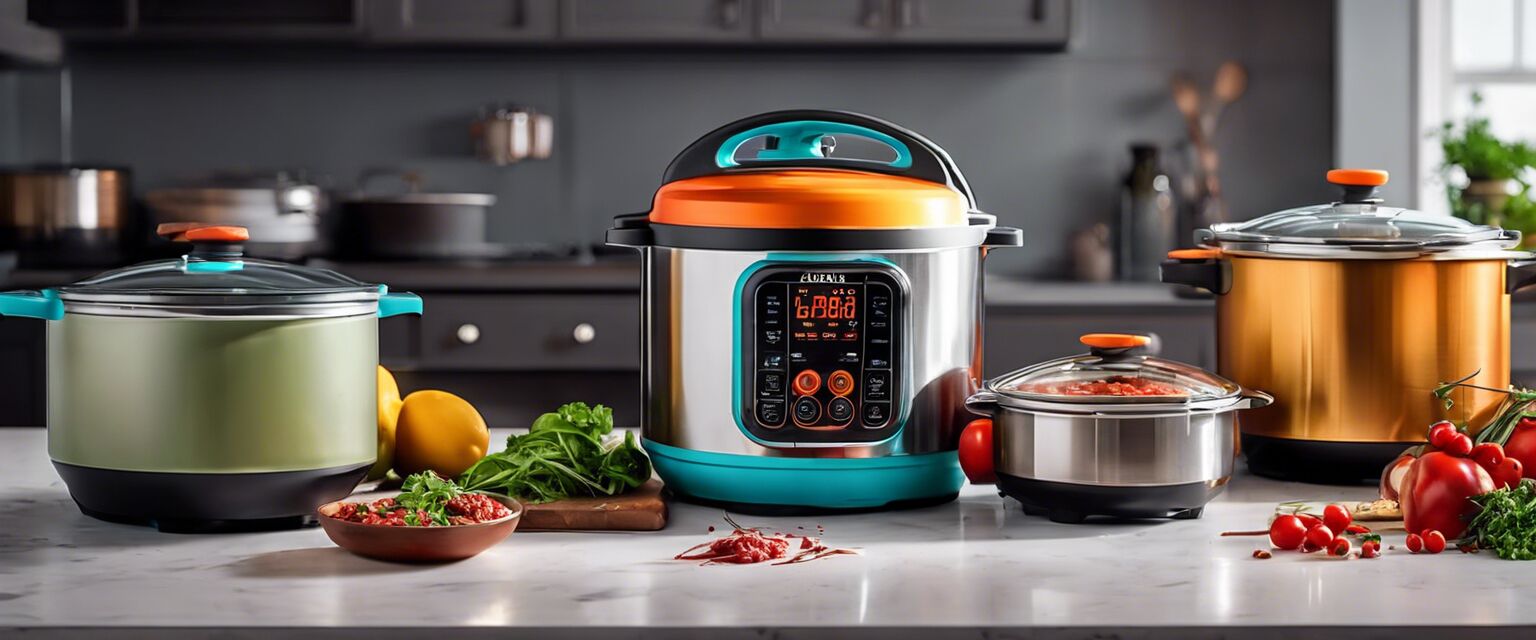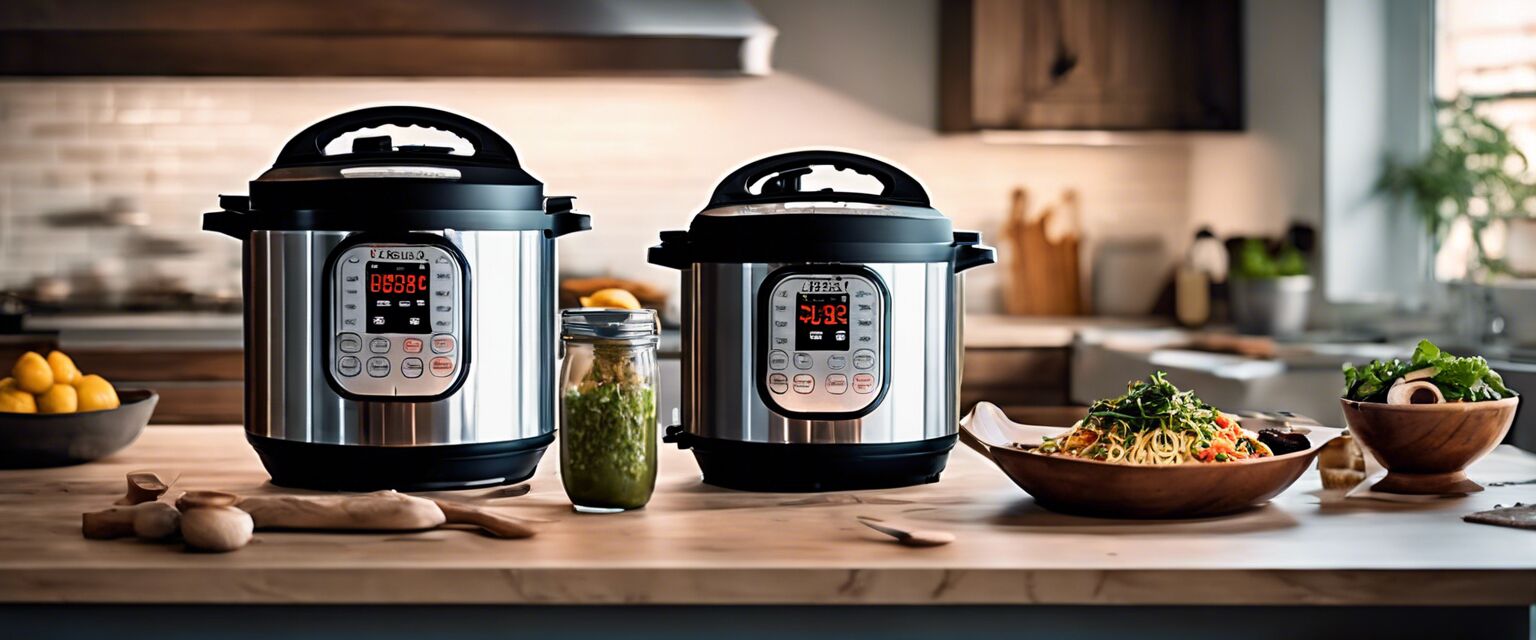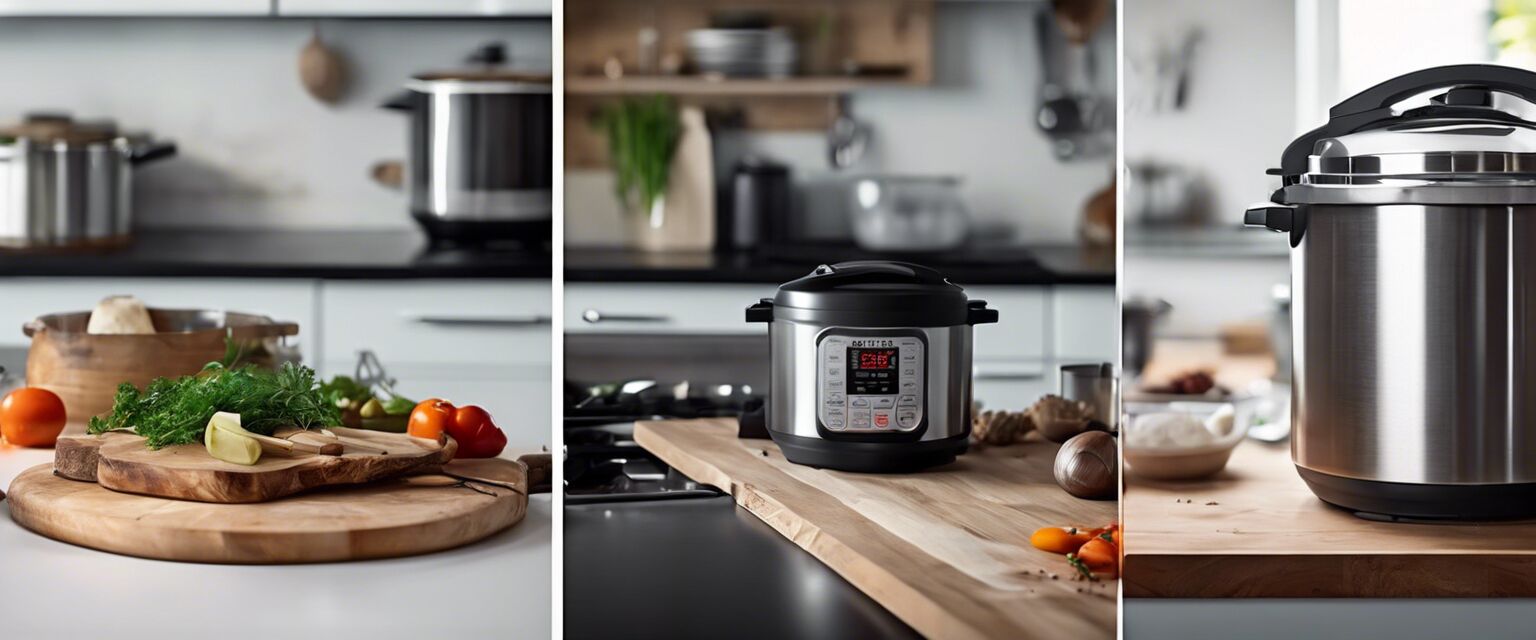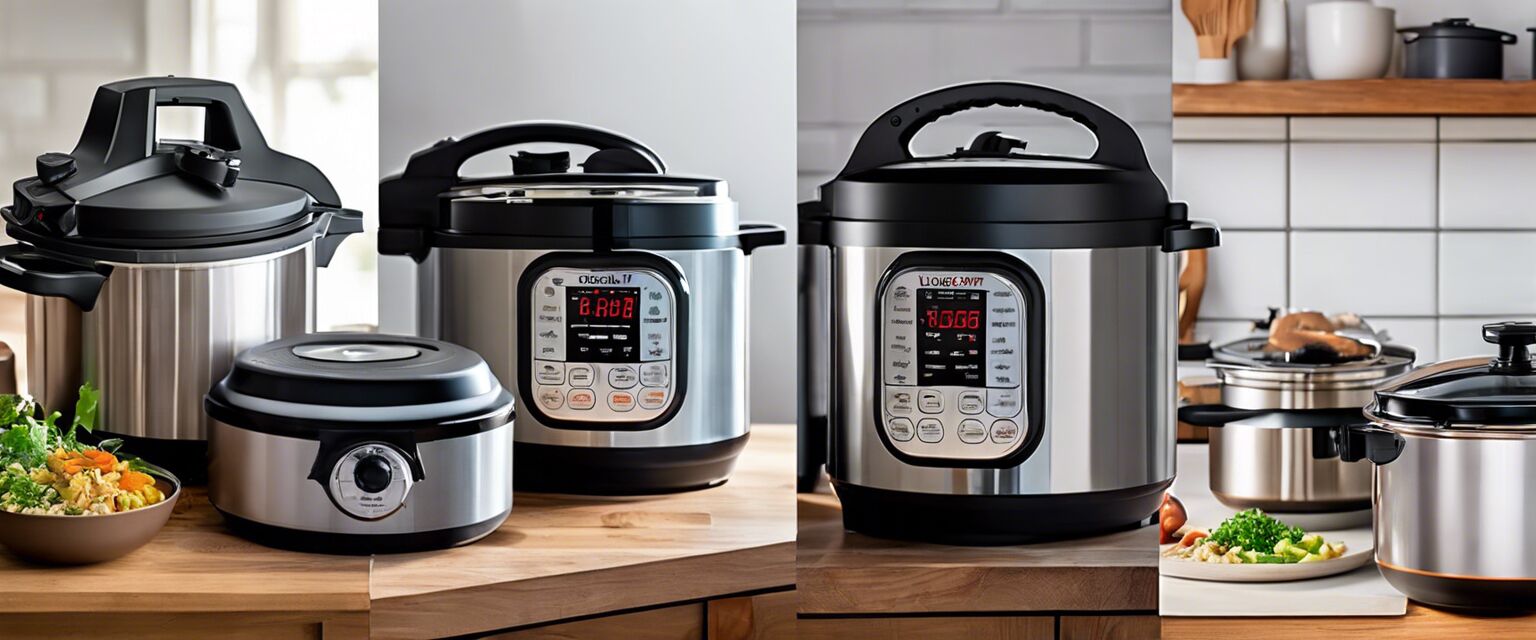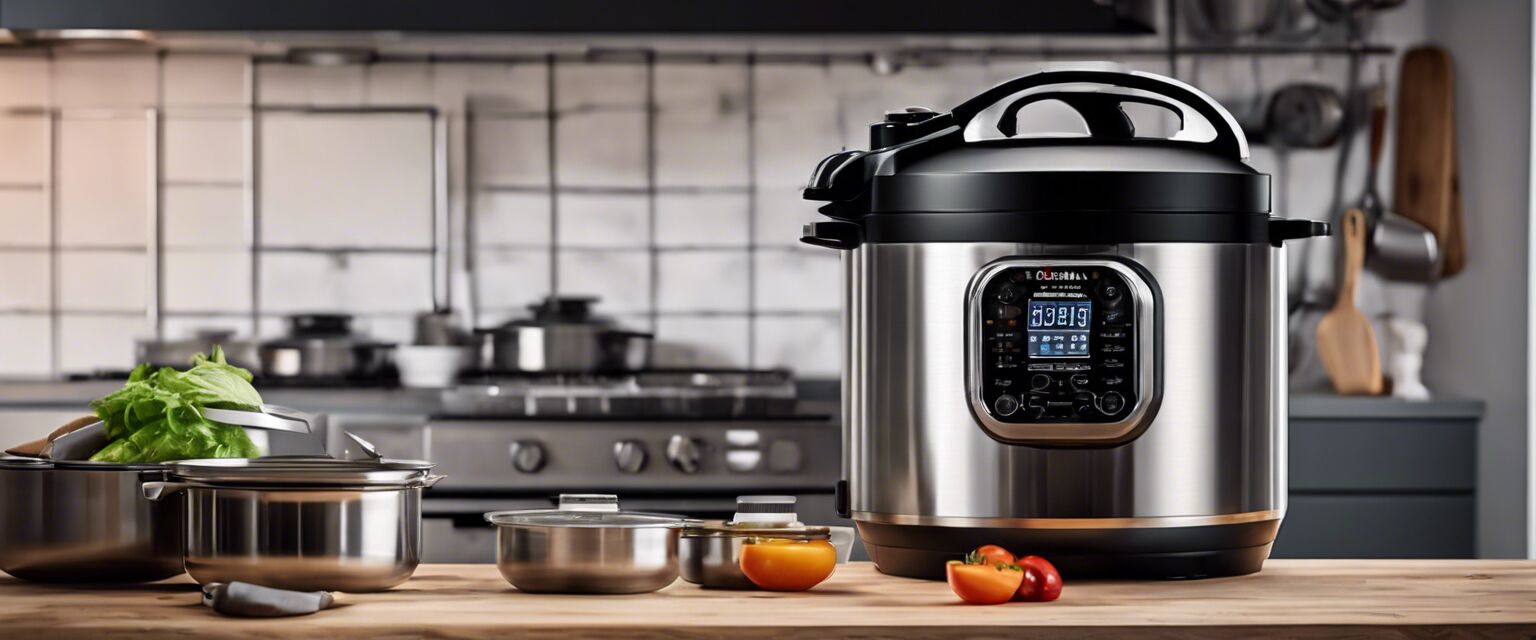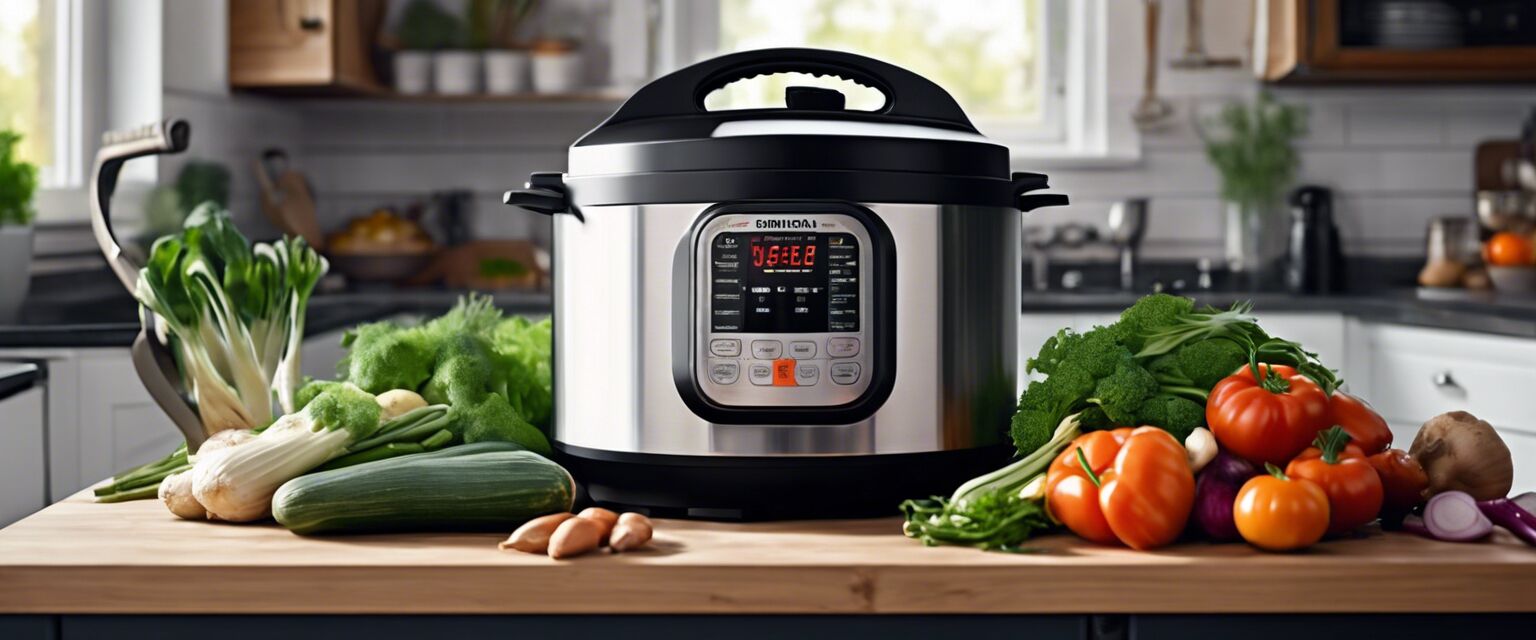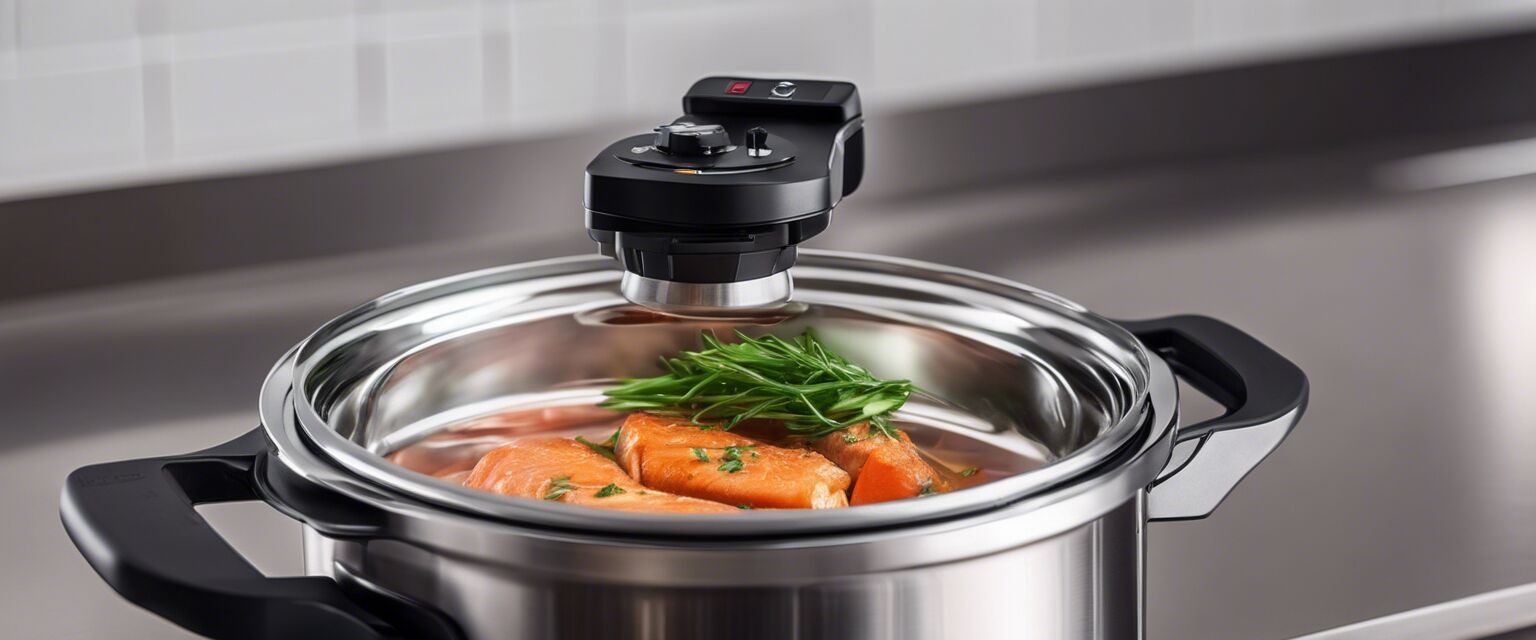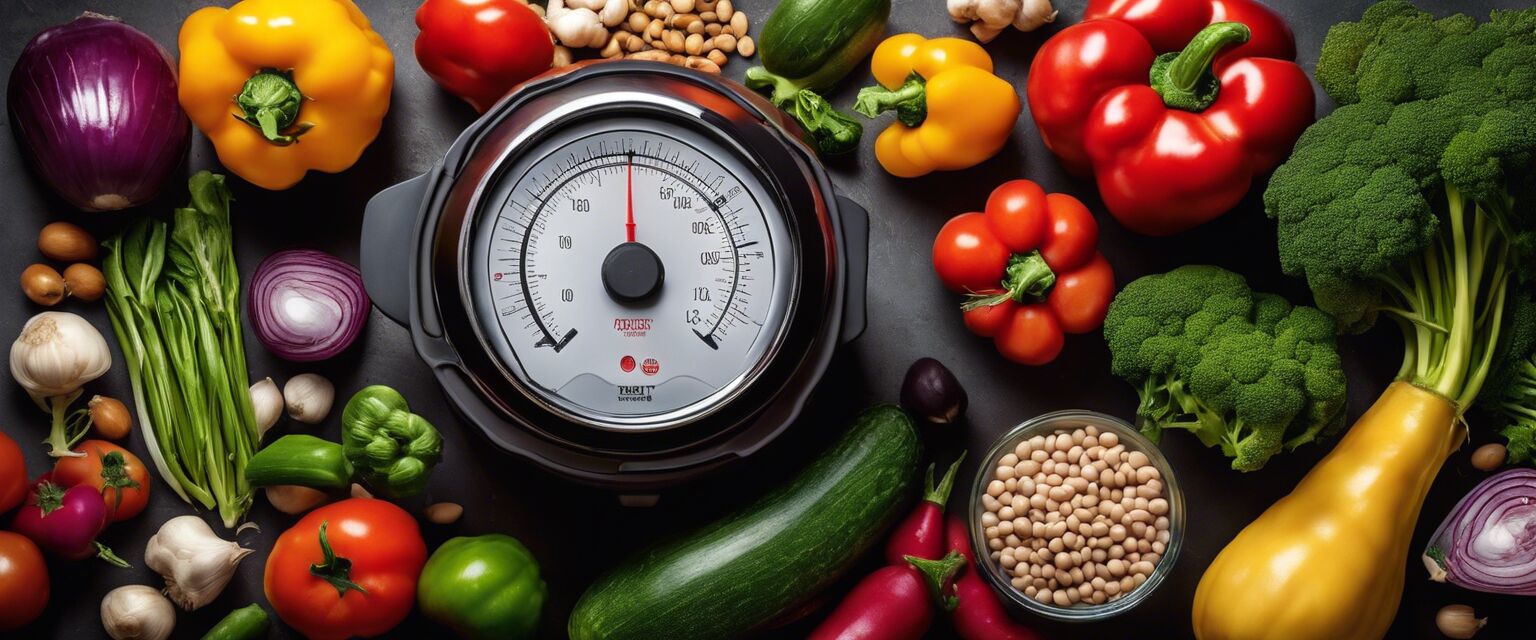
Health Benefits of Pressure Cooking
- Pressure cooking preserves nutrients effectively compared to traditional cooking methods.
- It reduces cooking time, which helps in maintaining the flavor and texture of food.
- Pressure cooking can result in lower acrylamide formation in certain foods.
- Using a pressure cooker can enhance the flavors in meals through quicker cooking processes.
- It promotes the cooking of whole, healthy meals without needing excess fats or oils.
Pressure cooking is a technique that has gained popularity for its efficiency and ability to retain the natural flavors and nutrients of foods. With the fast-paced lifestyles many of us lead, incorporating healthful cooking methods is essential. This article dives into the health benefits associated with pressure cooking and how it can transform your cooking experience.
Understanding Pressure Cooking
Pressure cooking involves cooking food under steam pressure in a sealed pot, which raises the boiling point of water and allows food to cook faster. This method has several key advantages, especially concerning nutrient preservation.
How Does Pressure Cooking Preserve Nutrients?
The unique environment created inside a pressure cooker significantly impacts how nutrients are retained during the cooking process. Here's a brief breakdown:
| Nutrient | Traditional Cooking | Pressure Cooking |
|---|---|---|
| Vitamins (A, B, C) | Can be lost due to prolonged heat | Better retention due to shorter cooking time |
| Minerals | Often leached out into cooking water | Minimal loss as cooking liquid is retained |
| Antioxidants | Can decrease with high temperatures | Preserved more effectively through rapid cooking |
Advantages of Pressure Cooking for Health
Here are some notable health benefits of pressure cooking:
- Quicker Meal Preparation: Reduces cooking time drastically, making it easier to prepare healthy meals after a long day.
- Enhanced Flavor: The sealed environment intensifies the flavors of spices and ingredients.
- Less Fat Needed: Requires little to no oil, promoting healthier eating habits.
- Preservation of Food: Cooking with pressure can extend shelf life for certain foods.
- Reduced Waste: Enables utilizing leftovers and cooking in bulk, minimizing food waste.
Pressure Cooking and Food Safety
Using a pressure cooker can enhance food safety by ensuring that foods reach the required temperatures to kill harmful bacteria quickly. Pressure cooking is particularly effective for:
- Canning foods safely.
- Cooking legumes which can harbor toxins if not cooked properly.
- Helping to eradicate pathogens in meats at reduced cooking times.
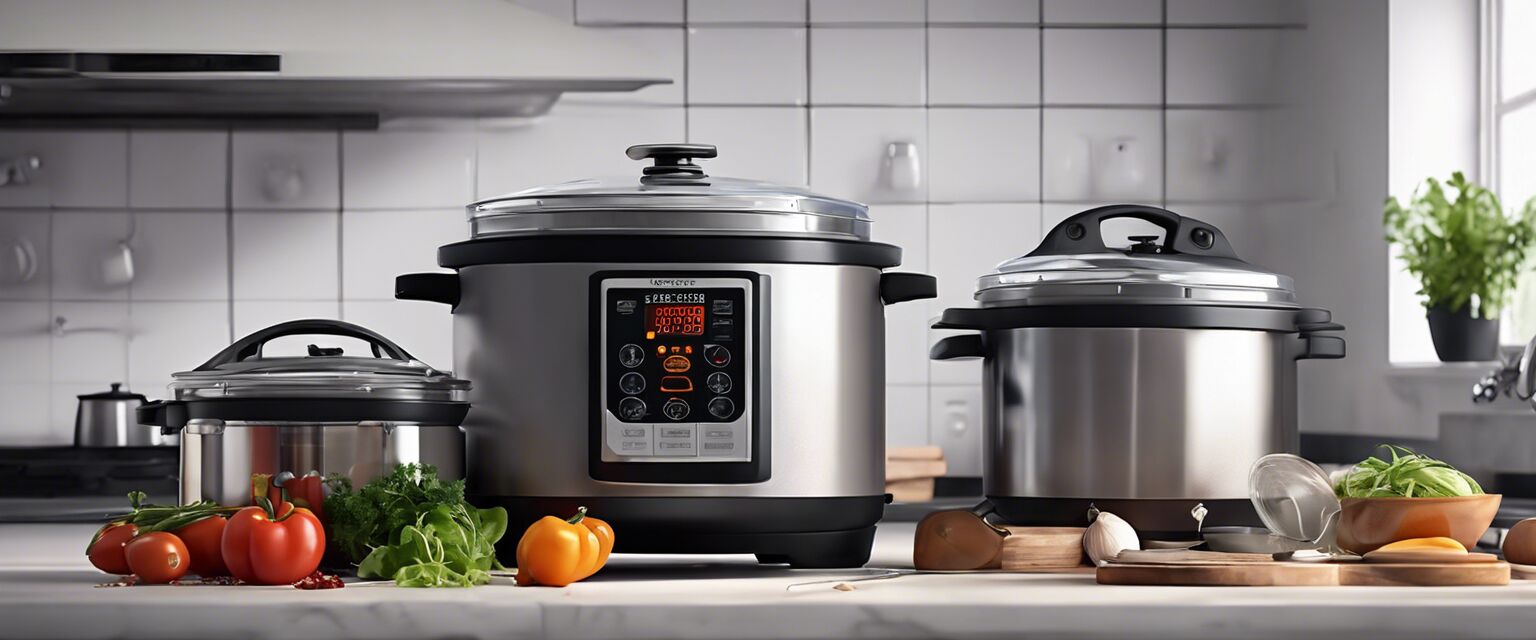
Comparing Cooking Methods
To understand the unique advantages of pressure cooking better, hereâs a comparison of it against traditional methods:
| Cooking Method | Time Taken | Nutrient Retention | Flavor Preservation |
|---|---|---|---|
| Pressure Cooking | 10-30 minutes | High | High |
| Boiling | 30-60 minutes | Medium | Medium |
| Steaming | 20-40 minutes | Medium to High | Medium-High |
| Roasting | 45-120 minutes | Medium-Low | High |
Common Misconceptions about Pressure Cooking
Many people might have misconceptions about pressure cooking. Here are a few clarifications:
- Myth: Pressure cooking makes food mushy. Fact: When used correctly, it helps maintain the appropriate texture.
- Myth: Pressure cookers are unsafe. Fact: Modern pressure cookers come with safety features that make them very safe to use.
- Myth: You canât prepare desserts in a pressure cooker. Fact: Pressure cookers can be used for making cakes, puddings, and more!
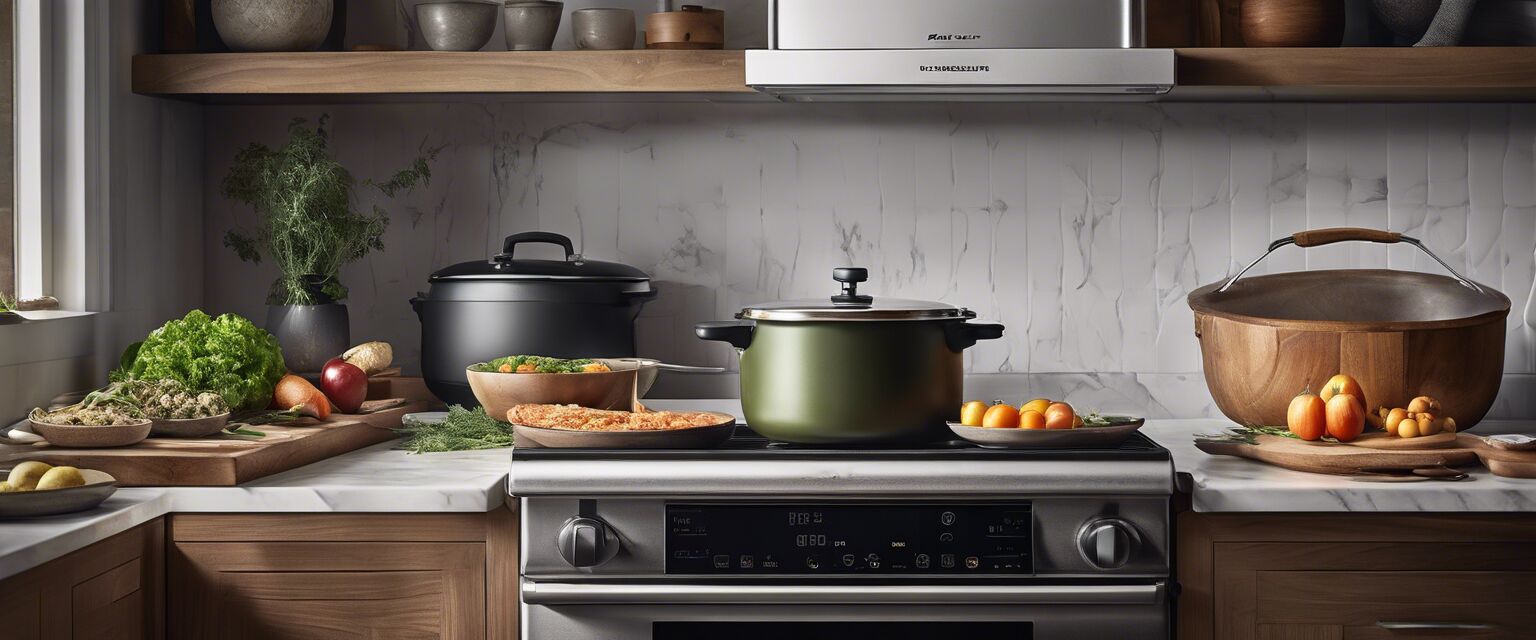
Tips for Beginners
- Start with easy recipes to get familiar with how your pressure cooker works.
- Always ensure there is enough liquid in the pot to prevent burning.
- Experiment with different ingredients as pressure cooking can speed up the flavor infusion process.
- Check your pressure cookerâs manual for cooking times for different foods.
- Invest in a good quality pressure cooker to ensure safety and durability.
Conclusion
Adopting pressure cooking into your meal preparation can significantly enhance your diet while providing a multitude of health benefits. Not only does it preserve the quality and nutrients of your food, but it also allows for quick, flavorful meals. There are plenty of resources available such as pressure cooker recipes and accessories that can make your pressure cooking experience even more rewarding.
Pros
- Retains nutrients and flavors effectively.
- Drastically cuts down cooking time.
- Promotes healthier cooking with less oil.
- Versatile for different types of meals.
- Enhances food safety through rapid cooking.
Cons
- Can require a learning curve for beginners.
- Initial cost may be higher than traditional cookware.
- Limited to specific types of foods or recipes.
- Requires careful monitoring for food allergies.
- Risk of steam burns if not handled properly.
